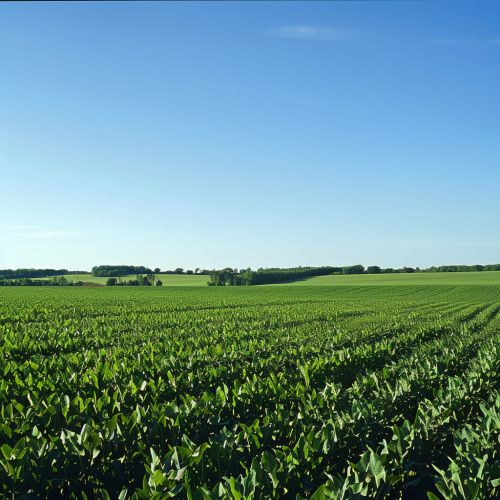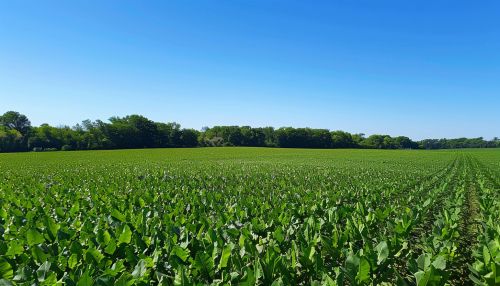Bayer CropScience
Overview
Bayer CropScience is a division of Bayer AG, a global enterprise with core competencies in the Life Science fields of health care and agriculture. Bayer CropScience is one of the world's leading innovative crop science companies in the areas of seeds, crop protection, and non-agricultural pest control. The division focuses on high-value seeds, innovative chemical and biological crop protection solutions, and services for modern, sustainable agriculture.
History
Bayer CropScience was formed in 2002 through the acquisition of Aventis CropScience by Bayer AG. Aventis CropScience itself was a merger of the crop protection businesses of Hoechst AG and Rhône-Poulenc. The acquisition marked a significant expansion of Bayer's agricultural business, making it one of the top players in the global agrochemical market.
Business Segments
Bayer CropScience operates through three main business segments: Crop Protection, Seeds & Traits, and Environmental Science.
Crop Protection
The Crop Protection segment includes a wide range of products designed to protect crops from pests, diseases, and weeds. This segment is further divided into herbicides, fungicides, insecticides, and seed growth products.
Herbicides
Herbicides are chemicals used to control unwanted plants. Bayer CropScience offers a variety of herbicides that target specific weeds without harming the crops. Some of the well-known products include Glyphosate, Glufosinate, and Dicamba.
Fungicides
Fungicides are used to prevent and control fungal diseases in crops. Bayer's fungicide portfolio includes products like Trifloxystrobin, Prothioconazole, and Fluopyram.
Insecticides
Insecticides are chemicals used to control insect pests. Bayer CropScience provides a range of insecticides, including Imidacloprid, Thiacloprid, and Flupyradifurone.
Seed Growth
Seed growth products include treatments that protect seeds from pests and diseases during the early stages of growth. These products often contain a combination of fungicides, insecticides, and biological agents.
Seeds & Traits
The Seeds & Traits segment focuses on the development and commercialization of high-value seeds and traits that enhance crop yield and quality. This includes genetically modified (GM) seeds, hybrid seeds, and trait technologies.
Genetically Modified Seeds
Bayer CropScience develops GM seeds that are resistant to pests, diseases, and herbicides. These seeds are engineered to express specific traits, such as insect resistance and herbicide tolerance. Examples include Bt cotton and Roundup Ready soybeans.
Hybrid Seeds
Hybrid seeds are produced by cross-breeding different plant varieties to achieve desirable traits such as higher yield, disease resistance, and improved quality. Bayer offers hybrid seeds for crops like corn, rice, and vegetables.
Trait Technologies
Trait technologies involve the introduction of specific genetic traits into crops to improve their performance. These traits can include drought tolerance, nitrogen use efficiency, and enhanced nutritional content.
Environmental Science
The Environmental Science segment provides solutions for non-agricultural pest control. This includes products for professional pest management, vector control, and turf and ornamentals.
Professional Pest Management
Bayer CropScience offers a range of products for controlling pests in residential, commercial, and industrial settings. These products include insecticides, rodenticides, and termiticides.
Vector Control
Vector control products are designed to manage disease-carrying insects such as mosquitoes. Bayer's solutions include larvicides and adulticides that help control the spread of diseases like malaria and dengue fever.
Turf and Ornamentals
This segment provides products for the maintenance of turf and ornamental plants in settings such as golf courses, sports fields, and public parks. The portfolio includes herbicides, fungicides, and insecticides specifically formulated for these applications.
Research and Development
Bayer CropScience invests heavily in research and development (R&D) to drive innovation in agriculture. The company operates several R&D centers around the world, focusing on areas such as biotechnology, crop protection, and digital farming.
Biotechnology
Biotechnology research at Bayer CropScience aims to develop new traits and improve existing ones. This includes the use of CRISPR technology for gene editing and the development of new GM crops with enhanced traits.
Crop Protection Research
Crop protection research focuses on discovering and developing new active ingredients for herbicides, fungicides, and insecticides. This involves extensive field trials and regulatory testing to ensure the safety and efficacy of new products.
Digital Farming
Digital farming, also known as precision agriculture, involves the use of digital tools and data analytics to optimize farming practices. Bayer CropScience offers digital farming solutions that help farmers make data-driven decisions to improve crop yield and sustainability.
Sustainability Initiatives
Bayer CropScience is committed to promoting sustainable agriculture through various initiatives. These include efforts to reduce the environmental impact of farming, improve resource efficiency, and support smallholder farmers.
Environmental Impact Reduction
The company aims to reduce the environmental impact of its products and operations. This includes developing more environmentally friendly crop protection products and implementing sustainable manufacturing practices.
Resource Efficiency
Bayer CropScience promotes resource-efficient farming practices such as integrated pest management (IPM) and precision agriculture. These practices help farmers use inputs like water, fertilizers, and pesticides more efficiently.
Support for Smallholder Farmers
The company supports smallholder farmers through initiatives that provide access to modern farming technologies, training, and financial services. These efforts aim to improve the livelihoods of smallholder farmers and enhance food security.
Controversies and Criticisms
Like many large agrochemical companies, Bayer CropScience has faced controversies and criticisms. These include concerns about the safety of GM crops, the environmental impact of pesticides, and the company's business practices.
GM Crop Safety
Critics argue that GM crops may pose risks to human health and the environment. However, Bayer CropScience maintains that its GM products are thoroughly tested and regulated to ensure their safety.
Pesticide Impact
There are concerns about the impact of pesticides on non-target organisms, such as bees and other pollinators. Bayer CropScience has faced criticism over the use of neonicotinoid insecticides, which have been linked to bee population declines.
Business Practices
The company has also been criticized for its business practices, including aggressive marketing tactics and patent enforcement. Some critics argue that these practices can limit farmers' access to seeds and other agricultural inputs.
Future Directions
Bayer CropScience continues to focus on innovation and sustainability as key drivers of its future growth. The company aims to develop new technologies and solutions that address the challenges of modern agriculture, such as climate change, resource scarcity, and the need for increased food production.
Climate Change Adaptation
Bayer CropScience is working on developing crop varieties and farming practices that are resilient to climate change. This includes breeding crops with improved drought tolerance and developing digital tools to help farmers adapt to changing weather patterns.
Sustainable Intensification
The concept of sustainable intensification involves increasing agricultural productivity while minimizing environmental impact. Bayer CropScience supports this approach through the development of high-yielding crop varieties and precision farming technologies.
Collaboration and Partnerships
The company collaborates with various stakeholders, including universities, research institutions, and non-governmental organizations (NGOs), to advance agricultural innovation. These partnerships aim to leverage collective expertise and resources to address global agricultural challenges.
See Also


